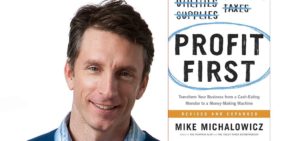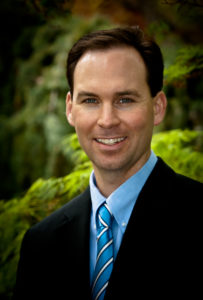by Karah Karah | Nov 29, 2017 | Wealth Wisdom
Podcast: Play in new window | Download

On today’s episode, Reese Harper joins us to talk about why many dentists are not retiring or scaling back on working as early as planned. Reese explores the different financial areas where dentists tend to go wrong with their planning and why dentistry in general has an issue with misunderstood and mismanaged finances. He really gives an interesting perspective on why dentists should be focusing on their net worth when it comes to achieving their long and short term goals.
Reese emphasizes why making small, incremental changes will be better for your business in the long run. He also discusses different traps dentists fall into and how to know a good financial advisor from a sales-person. We wrap up with a conversation on what exactly net worth is and explore various ways to keep track of it and make sure your practice and spending are in line with your goals.
Key Quotes:
- “We’re so focused on improving the practice that we don’t even care what our own personal wealth is, but man, we know our collections so well. And our personal wealth is not subjective, it’s a number that is as tangible as collections.”
- “Personal finance is 80% about behavior and only about 20% about knowledge.”
- “Not only are they high achieving, but they’re actually, really kind of giving, benevolent people, so they end up giving to their patients, giving to their teams, giving to their families, giving to their communities.. and not really being a good steward with self-care, whether that be health or finance and that causes a lot of struggle and strife.”
- “When we feel like there’s something wrong, we want to make a big adjustment.”
- “They become really big targets for people that are selling things to them.”
- “When you hire a financial advisor, you just hope you’re hiring someone that can really help you make sense of all your finances, not just sell you stuff.”
- “Making a lot of money is not the same as being worth a lot.”
- “The definition of financial freedom is just being able to replace your lifestyle without having to work.”
- “Look at what you need based on what you spend.”
Featured on the Show:


by Karah Karah | Nov 15, 2017 | Wealth Wisdom
Podcast: Play in new window | Download

Most people have inspirations and wise leadership in their life that helped point them in the right direction with their career. Dr. Craig Smith credits his parents with instilling wisdom of finances and business from an early age. He joins us on the show to share his journey to finding his passion for dentistry all the way until now where he is the owner of his own general practice and the developer of Dental CE Network.
Craig shares what initially drew him into the dental industry and what priorities in his life helped him to decide his path and where to put his focus. He also shares the steps he took to get to ownership and discusses some issues and roadblocks he had along the way. He talks about his hesitance to buy a practice and weighs the positives and negatives of partnerships.
Finally, Craig talks about how he started the Dental CE Network and why he decided to get involved in that area. He casts a great vision for revolutionizing how, where and why dentists can get the continuing education that they want and need.
Key Quotes:
- “We don’t look backward for very long. We keep moving forward, opening up new doors and doing new things and curiosity keeps leading us down new paths.” – Walt Disney
- “You put yourself on an island and begin to measure yourself by a standard that’s impossible to achieve.” – Dr. Dave
- “Effort and intentions sometimes don’t always go how we wished but as long as we’re not intentionally cutting corners and trying to maintain high value for our patients, then we can all sleep well at night.” – Craig
- “You remember more of where you’ve been and what you’ve seen than what stuff you’ve had.” – Craig
- “Wouldn’t this be great if there was one site where you can just type in the address and see if there’s any CE courses?” – Craig
- “If I would’ve believed in myself, I would’ve gone and purchased a practice earlier.” – Craig
- “If we pull away and do something different, it allows us to enjoy dentistry when we have a little time away from it.” – Craig
Featured on the Show:


by Karah Karah | Sep 20, 2017 | Wealth Wisdom
Podcast: Play in new window | Download

By the time he was thirty-five years old, Mike Michalowicz had founded and sold two multi-million dollar companies. Then, after becoming an angel investor, he lost his entire fortune and started all over again. Driven to find better ways to grow healthier, stronger companies – he created innovative strategies to help businesses thrive.
The author of various impactful business books, including Profit First, The Toilet Paper Entrepreneur, The Pumpkin Plan, and Surge, Mike carries with him a powerful message that can transform the way we run our practices. In this episode, he explains why traditional accounting hurts businesses and shares insight into his profit-first system that will help turn reactionary choices into sound business decisions.
Key Quotes:
- The fundamental formula for accounting—sales minus expense equals profit—is crushing businesses because profit is not the first consideration.
- If you really care about your clients, you’ll really focus on profitability, so that you’re not selling unnecessary things, and you’re not just selling to survive. You’re selling resources that people truly need and caring for them.
- In our business, if we simply wait to see where and when there’s money, we’re in this binge mentality.
- If we intentionally restrict our money supply available to run our businesses, then we are forced to run frugal operations, as we should – helping our businesses grow faster and stronger than ever.
- As money starts accumulating in our profit reserve, it becomes tempting to borrow that money. You’ve got to remove the temptation of borrowing from it by getting it out of sight and out of mind.
- Instead of using a system that makes us change who we are, use a system that works with who we are naturally.
- If you’re really serious about being profitable, then set up a new checking account. It’s going to be your profit account.
Featured on the Show:


by Karah Karah | Sep 13, 2017 | Wealth Wisdom
Podcast: Play in new window | Download

Brady Frank learned early on in his dental school studies that he was interested in transitions and owning multiple practices. What he didn’t know was that he would discover a huge market for dentist-owned DSOs and a strategy that would help many dentists upgrade their practices, remain in control, gain multiple revenue streams and provide incredible opportunities for everyone they work with.
On this episode, Brady goes into detail to explain the transition process and how it is an incredible opportunity that dentists should be getting in on. He goes over the definitions of DSO, DDSO, equity harvesting, value-added practice and much more. The idea is to share the risk and the reward with co-owners while expanding practices using high-level scalability techniques.
Brady stresses the importance of taking control of your business future in order to not let your future business control you. Other important concepts to note are the win-win mentality, the ability to acquire good debt to pay off bad debt, working with real estate and creating your own private equity firm. With the right systems in place, it’s possible to do so much more with your practice than you ever thought was possible.
Key Quotes:
- A dual entity approach is that which allows a dentist like yourself listening to continue to have control over his organization while adding “Partners” (Co-owners).
- For every dollar that comes into the DSO, it is valued at a much higher appraisal than the clinical practice.
- In dentistry we have such an incredible opportunity to buy wholesale investments.
- We’re taking next level investment strategies and applying them to a niche market.
- We don’t want just you to win, it needs to be the other dentists involved in your organization to win. Or else it’s just a sham.
- If we aren’t in control of our business futures, it’s our business futures that control us.
- Dentists through various models can actually venture with each other to grow in regions that they previously would’ve thought impossible to grow in.
Featured on the Show:


by Karah Karah | Jul 10, 2015 | Wealth Wisdom
Podcast: Play in new window | Download
Quotes & Notes:
- At the beginning for start-up practices, typically the biggest thing you can do for your practice is work on getting new patients in, upping the revenue for your patients, upping your effectiveness and efficiency. Overhead goes away.
- KPI, if you google it, you will see, the key performance indicator is a financial measure or non-financial measure that goes towards measuring how well an institute of business is doing. They can tell where you are right now and tell where you are going to be going.
- We find a lot of practices really struggle with having their hygiene team be aware of what they to be producing, what they need to be offering the patients.
- We typically say that 75% of efficiency is what you need to be looking at, which means that three out of the four patients reschedules.
- Every business has a life cycle. There is the growth stage, where it will be an upward slope. Most practices will have six months spurts because that is when you see your appointments come back in for a second time and plus the new appointments coming in. There will be the maturity stage, which means you will still be growing, but you are not growing as fast as in the growth stage. And then eventually there will be stagnation and decline.
- We usually say for new practices, the magic number to keep growing is somewhere around one to two new patients a day per working dentists.
- If you are busting that number out of the park, and you are continuing to see your practice not grow, I guarantee that you have an issue with getting people rescheduled back in.
- This [numbers for accepted cases] is more of a mental grasp, or some type of note, some type of shorthand to write on a piece of paper or spreadsheet that you carry around with you all day. If you are really looking at this number, and say I presented this much money to this person, track that in some type of format, come back in six months and see what has happened.
- Being able to tell them [patients] about the problem, and tell them what would happen if they don’t solve that problem, and then offering them the solution is very very important. You have to talk in their terms.
- If you know it is a financial problem, then there are solutions out there: financial payment plans that you can adopt, in house payment plans, etc.
- Another more powerful communication method is by asking questions at the beginning. You would be surprised at how many people can talk themselves into something just by asking the right questions.
- Sometimes it is a software problem where the people up front aren’t entering the information correctly for you to track your AR effectively. If the number is that high, and the software is correct, nine times out of ten it is a process problem.
- A lot of practices will do their billing on Friday, so the patients will get it on Saturday, and then they have two days to forget about it.
- At one point I was looking at a practice, and I noticed how much they were paying on credit card fees. That one practice, just by changing the phone number that that card service calls, basically is going to save almost $10,000 a year. When I saw that I thought that this must be a problem everywhere.
- Ideally, you want five percent so that if there are twenty appointments, only one of them is broken.
- You need to understand your capacity in order to know what you are trying to strive for. If you only have three ops, then your capacity is way different than what a ten op practice is.
- An active patient is a unique patient that has been seen for the past 18 months.
- We really tell most practices to strive for 45% in GP practices for a net take home.
- A lot of people base this (adding new dentists to their practice) by how tired they are . . . The biggest mistake we see is that they don’t know how much this relief is costing them.
- It really doesn’t make sense to bring in someone as a partner until you get to around the one and a half million points. That means you have a strong base and control over your overhead.
- Some fast-growing practices I see spend almost nothing on advertising. At the same time, some fast-growing practices I see spend a lot on advertising.
All of the most successful practice owners I have ever met were master marketers in their own right. They understood that marketing is a very essential part of any business.
- “We always overestimate the amount of change that can occur in two years. We always underestimate the change that can occur in ten years.” -Bill Gates
- Marketing and advertising, there are two facets to it. There is external, which is any patient who has never been in your practice before, and there is internal, which is making sure your patients stay your patients.
- To learn more from Jonathan Van Horn, you can email him at [email protected], visit his website, dentistmetrics.com, or even find him on Facebook or Linkedin.
If you enjoyed this episode, we would love a 5-star review on iTunes:

by Karah Karah | Jun 28, 2015 | Wealth Wisdom
Podcast: Play in new window | Download
Quotes & Notes:
First, download Jonathan’s gift for our podcast listeners: DentistMetrics KPI Guide
 If you are not leveraging your time with your CPA, in order to get the most out of them, then you are going to have to find that time elsewhere.
If you are not leveraging your time with your CPA, in order to get the most out of them, then you are going to have to find that time elsewhere.- No one’s ever going to have the absolute pinnacle business.
- We focus on the business in order have that have the maximum amount of returns for the owner because in the end it is going to be what funds everything else.
- There are multiple different approaches you can take with marketing; you can do a shotgun approach, you can do a sniper-rifle approach, you can do a machine gun approach, you can do a lot of different approaches. A lot of this is testing to see what is working.
- In a dental practice, if you are not at absolute capacity, then it makes absolute sense to fill to your capacity.
- Try and set your schedule up like the day that was most productive.
KPI – a key performance indicator. KPIs can be financial, they can be non financial, they can be actions, they can be a lot of different things.
- The main number that we look at is two fold. Number one we look at net productions, number two we look at the total of those wages and salaries plus benefits plus payroll taxes. Then we compare that to the revenues. We do not include family of the owner, we do not include the owner’s salary, and we also don’t include associates in this.
- Startups for the first few months will not really be in these numbers. These numbers really start kicking into gear when you get into around $650,000-800,000 dollars in revenue.
- There are a few universal truths in the world. One of them is that they think they are busy. Strangely enough, everyone also thinks that they are efficient.
- The practice as a whole has to really start heading towards a specific path. They have to be set on some type of system, some type of game-plan to be able to get them to that number. Typically when we talk about that it is going to be a production type goal.
- If you are in a not competitive market then you are probably not in a very good market.
- We have a general rule on five percent on supplies. There are some practices that aren’t going to be able to reach that.
- It is very difficult to trade convenience for money. There are a lot of places that you can buy supplies, and they can frame it in a way that you feel like you are saving money but in the end, if you are paying $26 for a barrier, and you can get it someplace else for $19, then you are paying seven dollars more.
- If you are thinking about saving 20% on your supply costs each year, and your supply costs are $10,000 then you are better off going out and finding three new patients to replace that $2,000 dollars.
Five percent (for supplies) is the number that we always strive for, and for some practices this is not attainable, but you would be surprised at what you can obtain by trying.
- For the hygiene rule of three, the first level we have is that hygiene typically contribute about a third of the production of the practice. The second three is that the hygiene department should typically be compensated at about a third of net productions or collections in some fashion. The third one is that you like to have less than three hours a week of unscheduled hygiene per hygienist.
- If you would like to learn more from Jonathan Van Horn, email him at [email protected], visit his website, dentistmetrics.com, or even find him on Facebook or Linked-in.
If you enjoyed this episode, we would love a 5-star review on iTunes:










 If you are not leveraging your time with your CPA, in order to get the most out of them, then you are going to have to find that time elsewhere.
If you are not leveraging your time with your CPA, in order to get the most out of them, then you are going to have to find that time elsewhere.